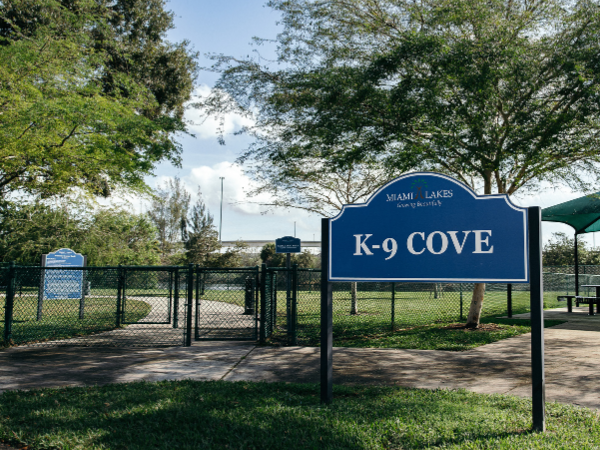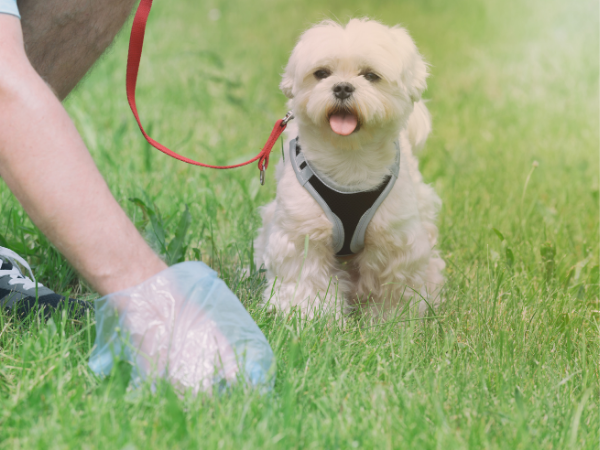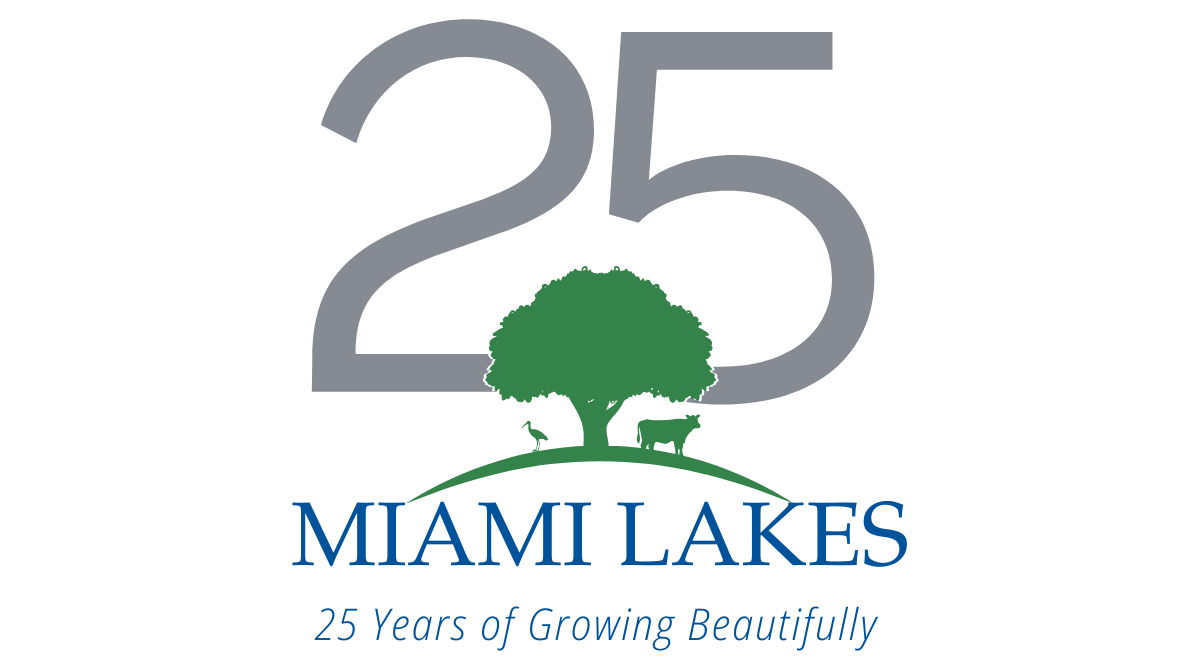Paw Portal
-

K-9 Cove Dog Recreation Area
-

Lost & Found Pets
-

Dog Events
-

Responsible Pet Ownership Initiative
-

Regulations on Dogs in Public Areas
K-9 Cove Dog Recreation Area
K-9 Cove is the Town’s only off-leash dog recreation area. It is free and open to the public every day from 8:00 am to sunset.
K-9 Cove is located at 14048 Palmetto Frontage Road (N.W. 77 Court) and features both a passive recreational area and two separate fenced areas for smaller and larger dogs. The area includes benches, drinking fountains for dogs and humans, waste stations, and a joint open-air shelter for pet owners.
Damian Hernandez, a Miami Lakes resident and the winner of the Friends of the Dog Recreation Area Group’s naming contest, suggested K-9 Cove as the name for the new recreation area. On Saturday, October 21, 2017, K-9 Cove Recreation Area held its Grand Opening.
With the success of the first-ever dog event held at K-9 Cove in 2024, the park has become a popular venue for future dog events. News on upcoming events can be found under the ‘Dog Events’ tab.
K-9 Cove Recreation AreaLost & Found Pets
To notify the Town of a lost or found pet, please contact lostpets@miamilakes-fl.gov or call 305-364-6100.
You may also submit a lost or found pet online.
Lost & Found Pet PortalDog Events
In Miami Lakes, we take pride in having furry friends as residents, so it only makes sense that we host events for them too!
PHOTO GALLERY





2025 2nd Annual Pawliday Palooza gallery
2024 Paw-liday Palooza complete gallery
Responsible Pet Ownership Initiative
A key objective of the Town’s Responsible Pet Ownership Initiative is to educate and encourage residents to care for their four-legged companions, including picking up waste and vaccinating them.
DOG WASTE EFFECTS
Contrary to popular belief, dog waste is not a beneficial or safe fertilizer. Since dogs consume a high protein diet, their waste contains two-and-a-half times more nitrogen than cattle’s waste, resulting in acidic excrement, which destroys grass.
Dog poop introduces foreign pollutants to the environment, which are not beneficial to the ecosystem, unlike some other wildlife species.
This waste eventually breaks down and washes into the water supply, polluting our lakes and other local waterways.
Responsible Pet Ownership VideoRegulations on Dogs in Public Areas
Section 5-20
Regulations on dogs in public areas.
(a) Legislative intent. It is deemed in the best interests of the health, safety and welfare of the citizenry and visitors of Miami-Dade County, Florida, that all necessary precautions be implemented to prevent cutaneous larva migrans (a frequently severe skin disorder caused by the infective larvae of a dog hookworm which is transmitted by the contact of the human skin with soil contaminated by dog feces), and visceral larva migrans (a disease caused by the ingestion of larvae dog roundworms which commonly occurs when young children swallow dirt).
(b) It shall be unlawful for a responsible party to allow, whether willfully or through failure to exercise due care or control, a dog into or upon any public park or beach in the county; provided, however, this provision shall not apply to parkways, wayside parks, or other park areas in which dogs are specifically authorized.
(c) It shall be unlawful for a responsible party to allow, whether willfully or through failure to exercise due care or control, a dog to commit any nuisance upon: the sidewalk of any public street; the floor of any common hall in any apartment house, hotel, or other multifamily dwelling; or any entranceway, stairway or wall immediately abutting on a public sidewalk; or the floor of any theatre, shop, store, office building or other building used in common by the public. “Nuisance,” for the purposes of this section, shall be defined as defecation and/or urination. If a dog defecates on the grassy swale of a public right-of-way or other such public property, or on private property without the express or implied consent of the property owner, the responsible party shall remove the defecation and deposit it in an appropriate trash receptacle, sanitary disposal unit, or other sealed container.
(d) It shall be unlawful for a responsible party to allow, whether willfully or through failure to exercise due care or control, a dog to be unrestrained or to be at large in any manner in or upon: public property; a common area of a private building or development; or the private property of others without the express or implied consent of the property owner. Notwithstanding the foregoing, a dog may be unrestrained and shall not be deemed to be at large if it is supervised by a competent person and is: (i) in a park area in which dogs are specifically authorized by a municipality or by the County to be unrestrained; or (ii) engaged in the sport of hunting in an authorized area. An intact dog running at large shall be subject to higher civil penalties than a sterilized dog; provided, however, that if the dog is sterilized within 30 days of receipt of the civil violation notice, the penalty shall be reduced to the amount for a sterilized dog. An intact dog shall be sterilized if it has received more than two civil violation notices for violations of this section that, if appealed, have been affirmed.
(e) It shall be unlawful for a responsible party to fail to exercise proper care and control of his dog or dogs so as to allow the dog or dogs to become a public nuisance. Chasing vehicles or persons and trespassing upon public or private property in such a manner as to damage property shall be deemed a public nuisance.
(f) Exceptions. Subsections (b) through (d) of this section shall not apply to a person using a service animal or to a law enforcement officer using an animal for law enforcement purposes. Subsection (e) shall not apply to a law enforcement officer using an animal for law enforcement purposes.
(g) Notwithstanding the provisions of Section 8CC-4 governing the penalties for repeat or continuing violations, for enforcement by civil penalty in accordance with Chapter 8CC of this code, a second violation of this section shall carry a civil penalty of 2.5 times the penalty listed in Section 8CC-10, a third violation shall carry a civil penalty of 3 times the listed penalty, and each subsequent violation shall carry a civil penalty of 3.5 times the listed penalty.
(Ord. No. 08-10, § 3, 1-22-08; Ord. No. 10-27, § 1, 5-4-10; Ord. No. 12-77, § 2, 10-2-12)
Code of OrdinancesMiami-Dade County Services
Florida Fish and Wildlife Conservation Commission
Parks & Recreation
Jeremy Bajdaun
Parks & Recreation Director6601 Main Street
Miami Lakes, FL 33014
DEPARTMENT HOURS:
M-F: 8:30 am - 5 pm


